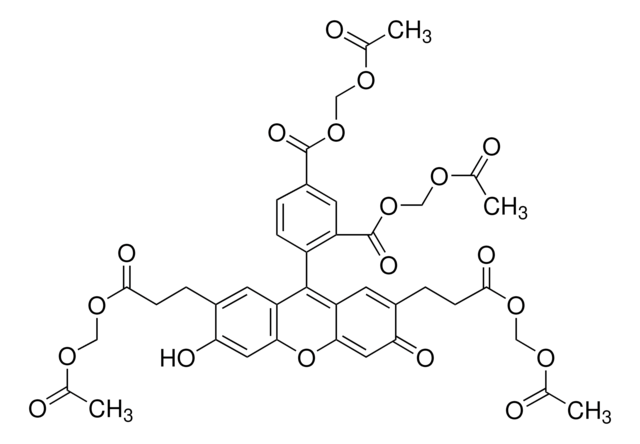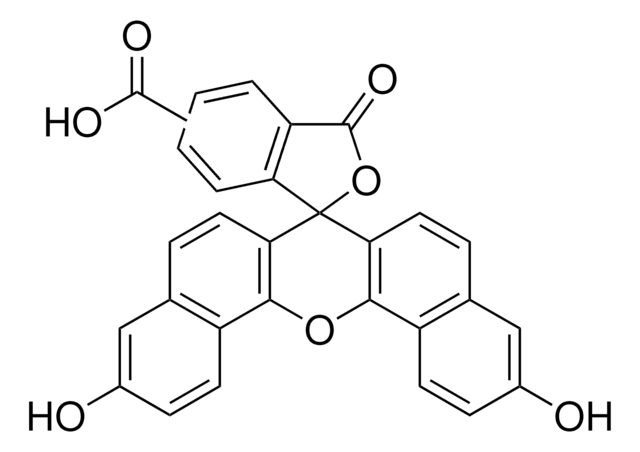37920
6,8-Dihydroxy-1,3-pyrenedisulfonic acid disodium salt
BioReagent, suitable for fluorescence, ≥97.0% (HPCE)
Synonym(s):
DHPDS, Disodium 6,8-dihydroxy-1,3-pyrenedisulfonate
About This Item
Recommended Products
product line
BioReagent
Assay
≥97.0% (HPCE)
form
powder
pKa
7.33
8.53
mp
≥250 °C (lit.)
solubility
DMF: soluble
H2O: soluble
methanol: soluble
fluorescence
λex 405 nm; λem 456 nm in 0.1 M citrate pH 3.0
λex 458 nm; λem 498 nm in 0.1 M Tris pH 8.0
suitability
suitable for fluorescence
SMILES string
[Na+].[Na+].Oc1cc(O)c2ccc3c(cc(c4ccc1c2c34)S([O-])(=O)=O)S([O-])(=O)=O
InChI
1S/C16H10O8S2.2Na/c17-11-5-12(18)8-2-4-10-14(26(22,23)24)6-13(25(19,20)21)9-3-1-7(11)15(8)16(9)10;;/h1-6,17-18H,(H,19,20,21)(H,22,23,24);;/q;2*+1/p-2
InChI key
JISMNCQKTAIERN-UHFFFAOYSA-L
Application
Packaging
Other Notes
Signal Word
Warning
Hazard Statements
Precautionary Statements
Hazard Classifications
Eye Irrit. 2 - Skin Irrit. 2 - STOT SE 3
Target Organs
Respiratory system
Storage Class Code
11 - Combustible Solids
WGK
WGK 3
Flash Point(F)
Not applicable
Flash Point(C)
Not applicable
Personal Protective Equipment
Certificates of Analysis (COA)
Search for Certificates of Analysis (COA) by entering the products Lot/Batch Number. Lot and Batch Numbers can be found on a product’s label following the words ‘Lot’ or ‘Batch’.
Already Own This Product?
Find documentation for the products that you have recently purchased in the Document Library.
Customers Also Viewed
Our team of scientists has experience in all areas of research including Life Science, Material Science, Chemical Synthesis, Chromatography, Analytical and many others.
Contact Technical Service













